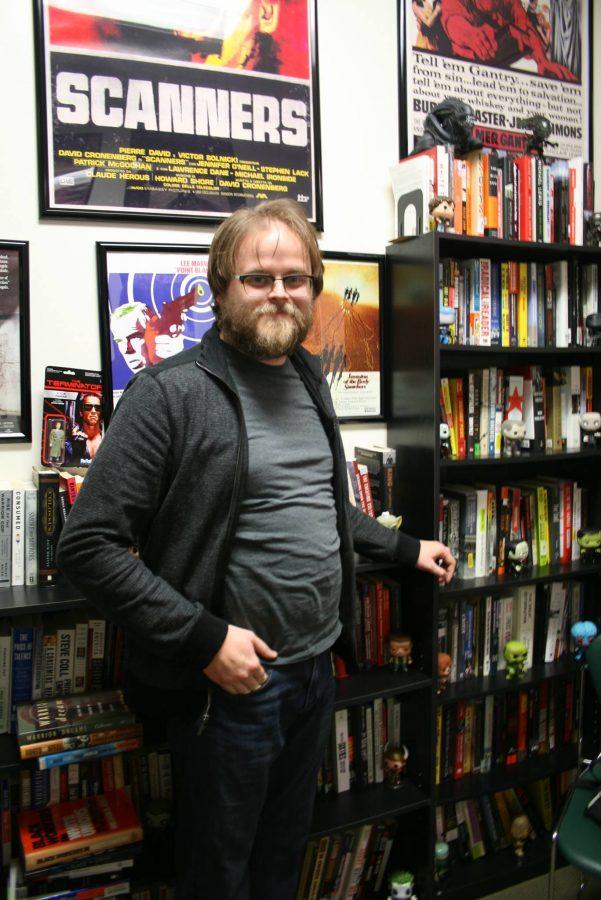Q & A: Brian Brems, film-lover and professor
February 24, 2017
Assistant professor of English Brian Brems has gained notoriety amongst students for showing them a different lens in which to see film. Teaching English Composition I, II, Film as Literature, and Intro to Film Art, Brems allows his own lifelong passion for the art as the tool to expand his student’s minds. Our Features Editor Caroline Broderick sat down with Brems to see what goes on behind the lesson.
Caroline Broderick: How do you find film helpful to students?
Brian Brems: I think film is a wonderful teaching tool, which is why I love teaching those courses. However, I also use film in my composition classes from time to time. Film is a great intersectional medium, because it allows for a variety of different types of learning. For example, truly understanding a film requires an ability to decode complex story construction and often hidden character motivations, in addition to a high level to analyze both visuals and sound, which work together to create meaning. Beyond that, though, there’s a tremendous amount to be learned about the social, political, economic and historical contexts in which the films were produced. Film is truly a mass medium like almost no other (television is its close cousin, of course) because it is produced collaboratively and seen by a wide audience. That means that each film is made up a variety of ideas, emotions, and arguments because it is created by a large group of people with varying perspectives. Students can gain a lot from exposure to all these elements.
CB: What can student learn from understanding film?
BB: I think that the best thing that students gain from studying film is increased awareness of the world around them. Film has always been a window into other people’s lives, other cultures, other time periods, and so on. In my classes, we study a variety of types of films from different eras, genres, and perspectives, which helps students broaden their own view of the world.
CB: What are some things you hope each student leaves your class understanding?
BB: When students leave my classes, I hope they’ve gained some greater sense of the importance of film to their lives, whether they realized it before or not. Film really is ubiquitous – television’s resurgence as an artistic medium in the past ten to fifteen years is largely because it seems to have taken advantage of properties of film. The same is true of video games, which seem to get more cinematic with each new generation of systems. Obviously the internet has changed the way we interact with technology in many profound ways, which we’re still trying to catch up with. However, it’s hard to overestimate the impact of film on the way we live. I think if students can gain an appreciation for that, along with a greater sense of how the medium works to convey meaning, I’m quite happy.
CB: How did you find yourself working with film and literature? Was it something you always wanted to do?
BB: I’ve always had a passion for film, even when I was very young. I first went to college to study filmmaking, but eventually drifted over more to the analytical side of things. My Master’s Degree from Northern Illinois University was in English, with a concentration in Film & Literature, so it’s something I studied in college quite a bit. I’m sure some part of me always knew I would end up doing something film-related, and I consider myself very lucky to be able to teach film at COD. Even as recently as a few years ago, it seemed like something that would be a near impossibility to imagine, but here I am, teaching film on an almost day-to-day basis. I hope that my enthusiasm for the subject, and my desire to help students broaden their horizons on the kinds of films they see, helps to create some enthusiasm in them.




















